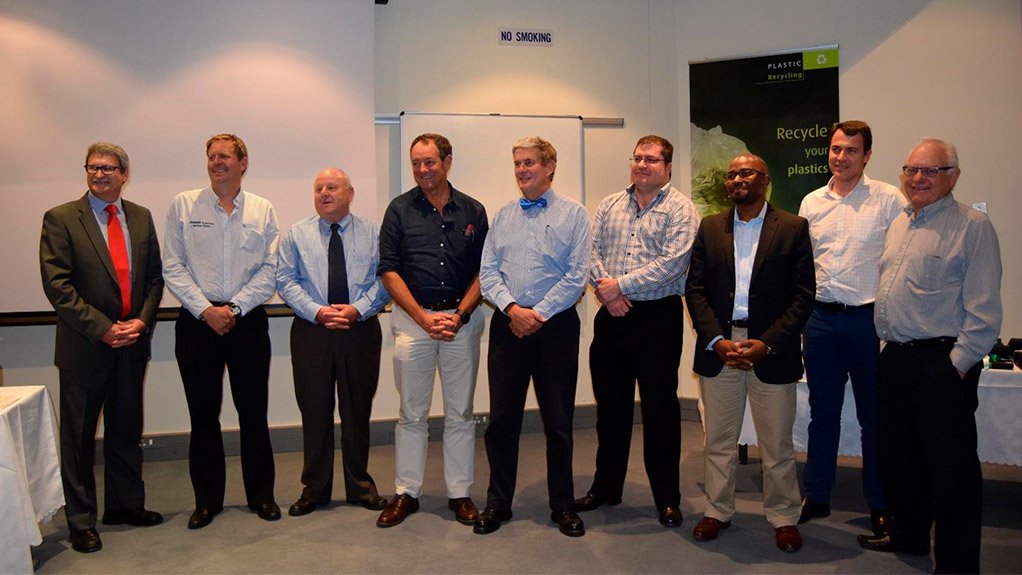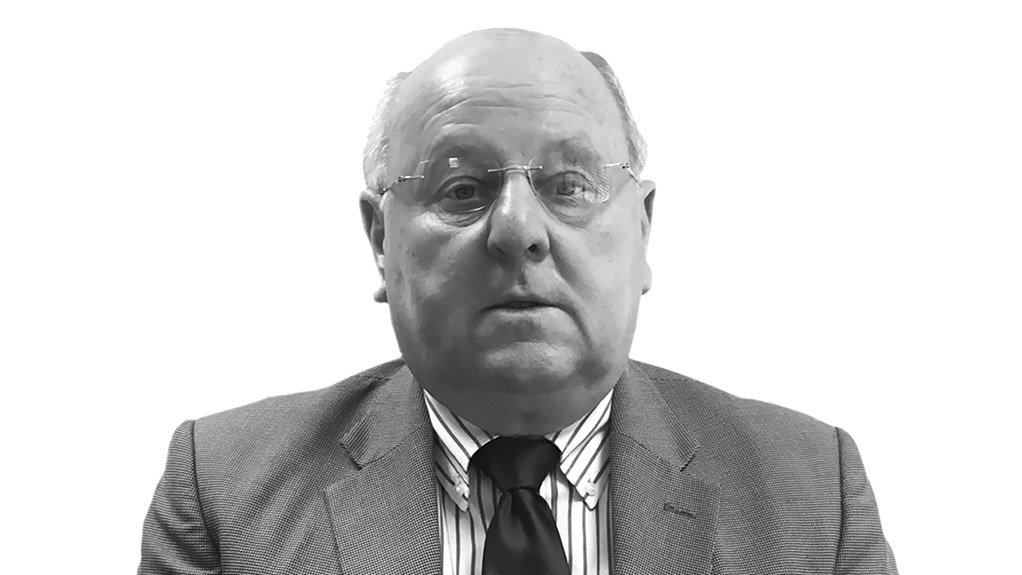- Plastics|SA (0.48 MB)
/ MEDIA STATEMENT / This content is not written by Creamer Media, but is a supplied media statement.
Plastics|SA concluded its activities for 2016 by hosting its Annual General Meeting in Midrand last week. Speaking to the various members, captains of industry, media and other interested parties who were in attendance, Plastics|SA Chairman Bernhard Mahl used the opportunity to highlight the importance of innovation in the industry and issued a challenge to the audience to get out of a survival mindset and back into a growth mindset through a conscious commitment to innovation.
“Looking back at what we have achieved during 2015, we can be proud of the fact that we have had a very successful year and that we managed to reach many of the strategic objectives we have set out to achieve. We have seen a growth of 6.4% in virgin material consumption to 1 490 000 tonne per annum, aswell as a 3% increase in the amount of plastics being recycled, allowing the local plastics Industry to now divert approximately 310 600 tonnes of plastics per annum from landfill,” Mahl said.
However, he warned that the industry can ill afford to rest on its laurels. “If we look at the past 5 – 10 years, the South African plastics industry has not recorded any real growth. Whilst we managed to have stayed on par with the country’s GDP growth, this is still far below the average plastics growth of 3% worldwide. We need to put on our innovators’ caps.
Think outside the box. What can we do differently? In South Africa we are unlikely to be able to compete with the first world who offer technological advancement. We are also not able to compete with companies from the Far East on price. However, we are in the unique position of understanding the challenges we face on the African continent, and as such we must push ourselves to find innovative solutions for the African environment,” Mahl said.
In his overview of the past year’s activities, Plastics|SA Executive Director, Anton Hanekom, confirmed that the local plastics value chain is well developed and that it caters to both local demand and export markets. The biggest markets this past year continued to be the packaging, building / construction and automotive industries, whilst competition from advanced developing countries and cheap imports of relatively low value-added products had a negative impact on domestic demand this past year.
“Despite difficult economic conditions, Plastics|SA stayed focused on fulfilling our mandate of creating a vibrant and sustainable plastics industry in South Africa that is valued and respected by local and international industry, customers, suppliers, government, community and employees”, Hanekom said. He highlighted four important strategic initiatives that were developed and implemented during 2015 as part of Plastics|SA’s aim to stimulate growth in the plastics industry.
These initiatives created the impetus for the Plastics Industry Growth Strategy were:
• Initiative 1: Zero Plastics to Landfill 2030;
• Initiative 2: Growth through Export and Import Replacement;
• Initiative 3: Innovation and Skills Development and
• Initiative 4: Industry support through Public-Private Partnerships.
Hanekom explained that putting the wheels in motion of these four projects were in line with our six core areas of focus, namely advocacy (assessing and influencing key decision-makers, policies and strategies that affect our industry), communication (sharing relevant industry issues with industry role-players, the media and the general public), training (meeting the needs of the plastics industry through offering training courses that are accredited and NQF aligned), research (acquiring and compiling industry statistics, as well as researching areas of strategic interest to the industry), sustainability (providing strategic leadership to the plastics industry on environmental issues) and member services (provided to companies who belong to their respective industry associations and pay their membership fees) and will continue to impact the industry and yield positive results for the next few years to come.
Guest speaker
The guest speaker on the day was Devan Valenti, an Independent Authors Award Winning Writer, who talked about considering design, innovative technology and sound policy in a challenging environment. “Business conditions may not be entirely favourable at this time, but if your company is truly innovative, you’ll be able to turn challenging conditions to your advantage,” Valenti encouraged.
2017 Board of Directors
Other highlights on the day’s programme included announcing the names of the new Plastics|SA Board for 2017. Anton Hanekom (Plastics|SA), Chairman Bernhard Mahl (Safripol), Vice-Chairman Douglas Greig (Tuffy Manufacturing, representing SAPRO), Vice-Chairman Jeremy Mackintosh (Polyoak Packaging (Pty) Ltd, representing PCA), Douw Steyn(Plastics|SA),Rudi Johannes (Polymark Recycling, representing SAPRO), Jan Venter (SAPPMA), Tim Stewart (I.T.B. Manufacturing, representing PCA), Mxolisi Khutama (Nampak Limited, representing PCA), Bob Bond (PISA, David Mokomela (Sasol Base Chemicals, representing Sasol Polymers), Mike Myers (EPSASA), Daniel Schoeman (HOSAF), Rowan le Roux (Polyoak Packaging (Pty) Ltd, representing Sustainability Council), Wayne Wiid (Pioneer Plastics, representing ARMSA), Magda van Zanten (Engen Petroleum Limited, representing Importers) and Helmut Oellermann (Plastichem (Pty) Ltd, representing Importers)
“Our future growth relies on competitiveness and innovation. We look forward to the new challenges and opportunities the next year will present to us. We are working and living in a space that is as unpredictable as it is dynamic. However, this presents us with exciting new opportunities and possibilities as we continue to develop and grow the industry and position ourselves in a way that is in-step with international developments without losing focus of our African roots and reality. With the help and support of our members, Plastics|SA will continue to actively grow and develop our market through passionately promoting the use of plastics as the material of choice,” Hanekom concluded.
Edited by: Creamer Media Reporter
EMAIL THIS ARTICLE SAVE THIS ARTICLE
To subscribe email subscriptions@creamermedia.co.za or click here
To advertise email advertising@creamermedia.co.za or click here















